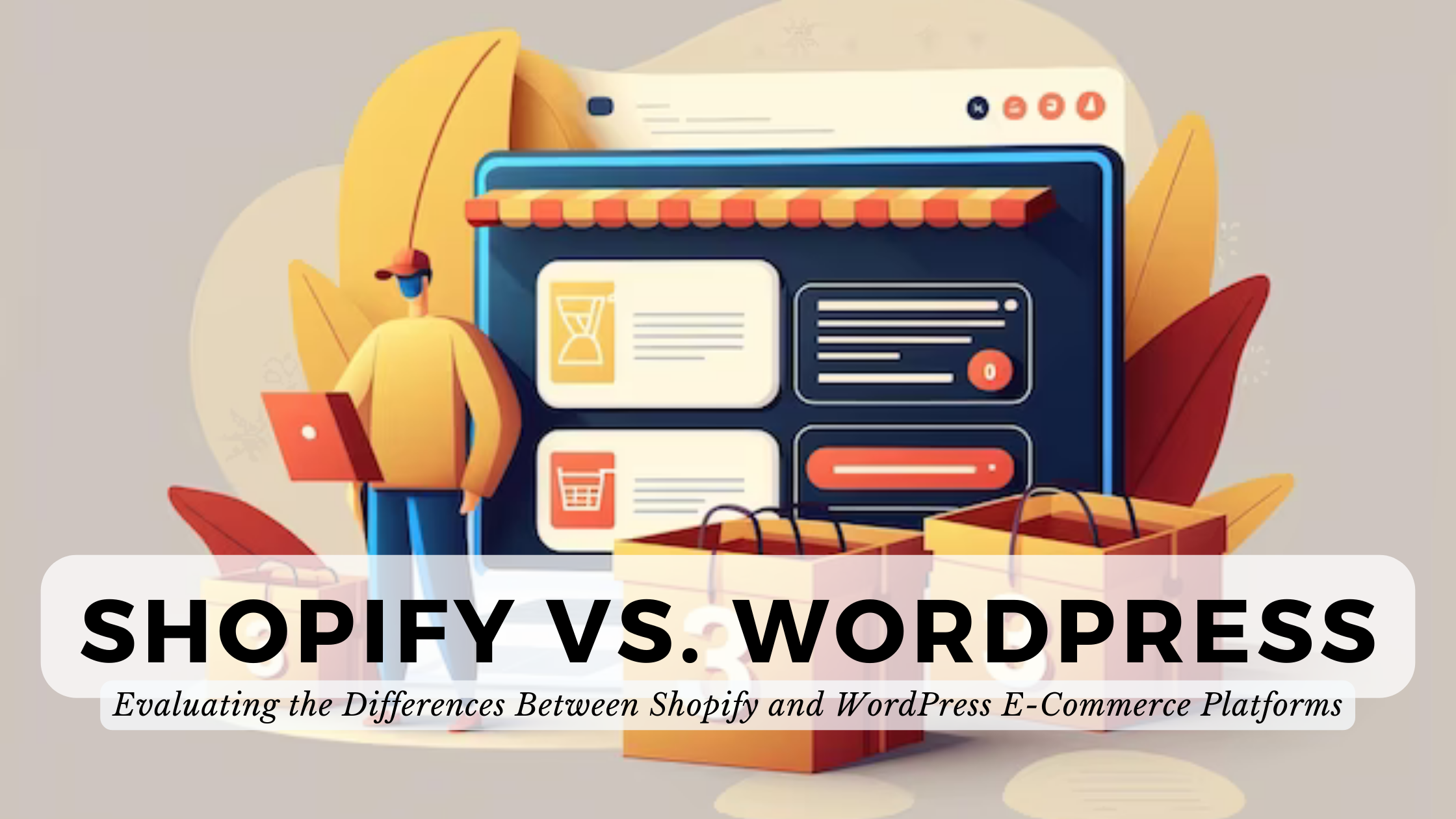Shopify vs. WordPress: Evaluating the Differences Between Shopify and WordPress E-Commerce Platforms


Shopify vs. WordPress: Navigating the E-Commerce Crossroads
In the dynamic realm of e-commerce, the choice of a platform is a critical decision that can significantly impact the success of your online business. Shopify and WordPress stand out as titans in this space, each offering a distinct set of features and functionalities. In this exploration, we embark on a journey to evaluate the differences between Shopify and WordPress e-commerce platforms, shedding light on their strengths, weaknesses, and the SaaS tools that can enhance your online business.
Unveiling the Titans: Shopify and WordPress
Shopify: The All-in-One E-Commerce Solution
Shopify positions itself as an all-in-one solution, providing a hassle-free experience for entrepreneurs looking to set up their online stores. Key features include:
- Ease of Use: Shopify is known for its user-friendly interface, making it accessible for both beginners and seasoned e-commerce professionals.
- Hosting Services: The platform includes hosting services, eliminating the need for users to manage separate hosting solutions.
- App Store: Access a vast array of apps from the Shopify App Store to enhance your store’s functionality.
WordPress: The Versatile Content Management System
WordPress, predominantly recognized as a content management system (CMS), has evolved to accommodate powerful e-commerce capabilities through plugins like WooCommerce. Key features include:
- Customization: WordPress offers unparalleled customization options, allowing users to tailor their online stores to specific needs.
- Content Flexibility: With its roots in content management, WordPress excels in content presentation and SEO optimization.
- Vast Plugin Ecosystem: The WordPress ecosystem boasts a multitude of plugins, with WooCommerce being a popular choice for e-commerce functionality.
Evaluating the Differences
1. Ease of Use:
- Shopify: Known for its simplicity, Shopify excels in providing a user-friendly environment, ideal for those with minimal technical expertise.
- WordPress: While WordPress itself is user-friendly, the learning curve may steepen when integrating e-commerce plugins like WooCommerce.
2. Customization:
- Shopify: Customization is streamlined through themes and the Shopify Liquid programming language, offering flexibility within certain constraints.
- WordPress: Unparalleled in customization, WordPress allows for extensive modifications through themes, page builders, and custom code.
3. Cost:
- Shopify: Operates on a subscription-based model with additional costs for apps and transaction fees, potentially becoming expensive as your business grows.
- WordPress: The core WordPress software is free, but costs may arise from hosting, premium themes, and plugins. It provides more control over budget allocation.
4. Scalability:
- Shopify: A robust solution for scalability, suitable for businesses of all sizes, with seamless upgrades available.
- WordPress: Scalability is achievable, especially with WooCommerce, but may require more hands-on management as your business expands.
Relevant SaaS Products to Elevate Your E-Commerce Journey
1. Oberlo
- A Shopify app for dropshipping, streamlining product imports, and order fulfillment.
2. Shopify Email
- Integrated email marketing directly within the Shopify platform.
3. WooCommerce
- A WordPress plugin for e-commerce functionality, offering extensive customization.
4. Yoast SEO
- A WordPress SEO plugin to optimize content for search engines.
5. Shopify POS
- Point-of-sale system seamlessly integrated with Shopify for offline sales.
6. MonsterInsights
- WordPress plugin for in-depth analytics and insights.
7. Bold Subscriptions
- Shopify app for managing subscription services.
Conclusion: Deciding Your E-Commerce Destiny
In the Shopify vs. WordPress debate, the choice ultimately boils down to your specific business needs, technical comfort, and long-term goals. Shopify streamlines the process for beginners, while WordPress offers unparalleled customization for those seeking full control. Each has its merits; the decision lies in aligning those merits with your unique vision.
Empowering Your E-Commerce Odyssey with Subscribed.FYI
As you traverse the e-commerce landscape, Subscribed.FYI emerges as your beacon, guiding you through the expansive universe of SaaS tools. Seamlessly integrated into your decision-making process, Subscribed.FYI offers exclusive deals and invaluable insights to enhance your online business.
Unlock Exclusive SaaS Deals with Subscribed.FYI Deals
Explore a curated collection of deals tailored to optimize your e-commerce endeavors. Sign up today to unlock savings and elevate your SaaS stack.
Simplify Your SaaS Subscription Management
Navigate the complexities of your SaaS stack effortlessly with Subscribed.FYI. From comparisons to exclusive deals, Subscribed.FYI stands as your trusted ally in the dynamic world of SaaS tools.
Embark on your e-commerce journey, empowered by knowledge, armed with the right tools, and guided by Subscribed.FYI.
Relevant Products:








